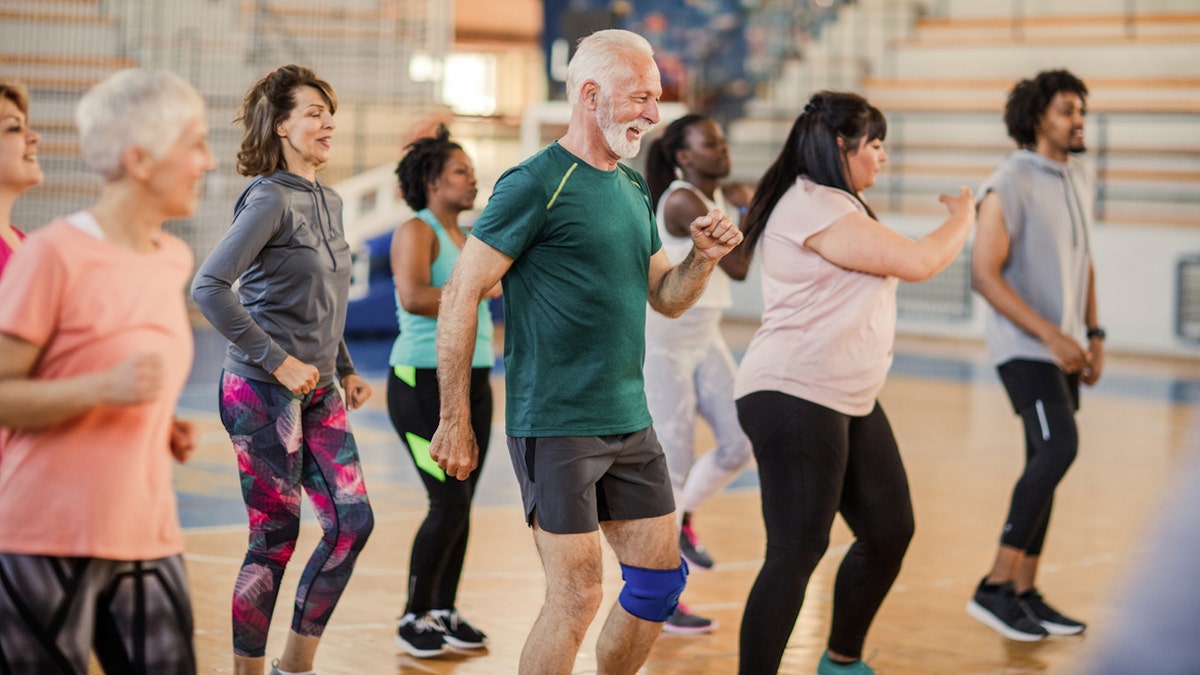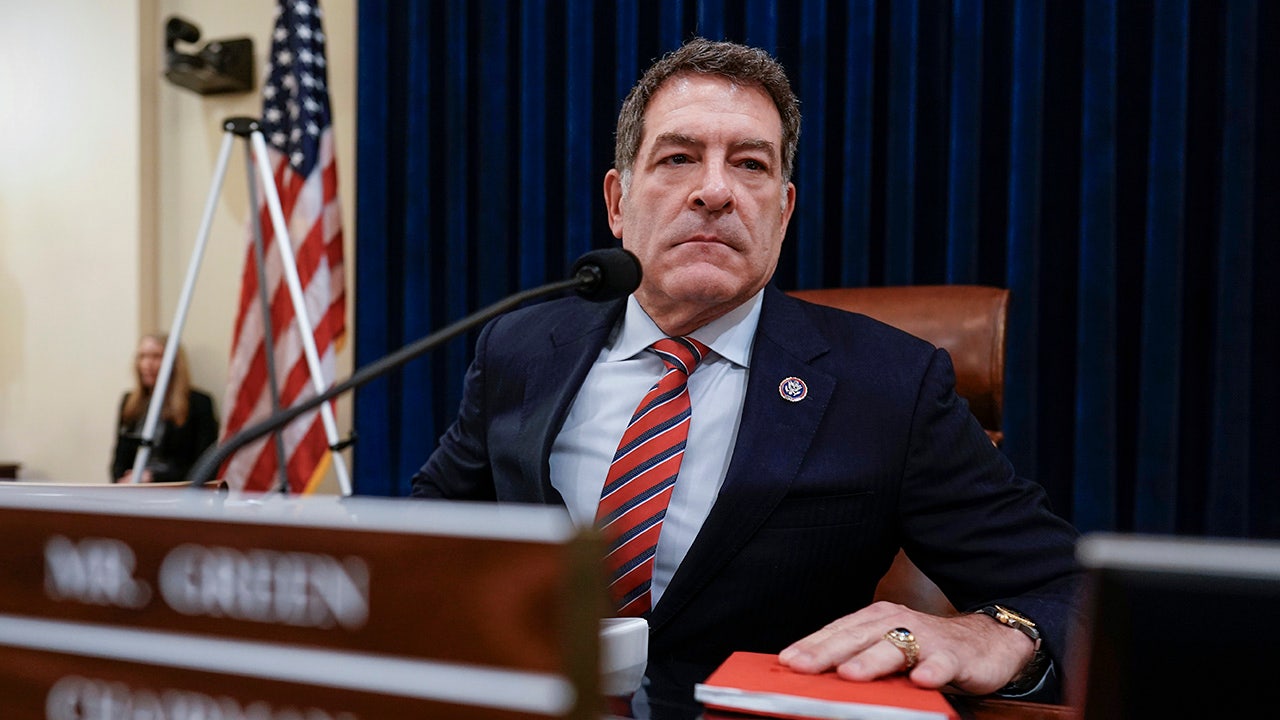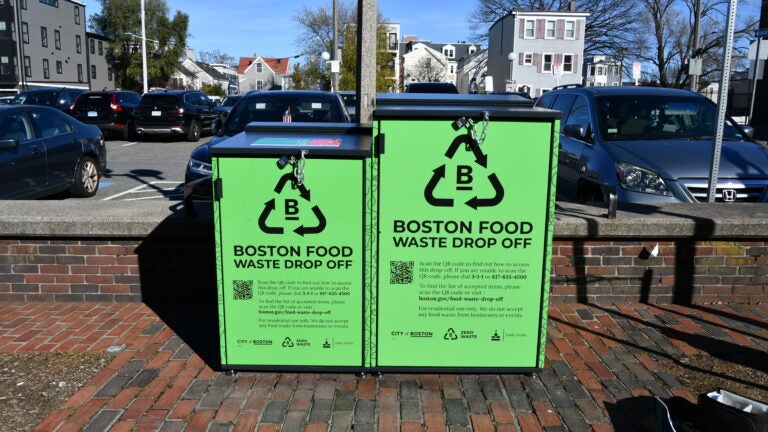Health
Boost brain health and slow mental aging with 10 intriguing tips from longevity experts

Just as our bodies and organs break down as we age, so do our brains.
While the cognitive aging process can’t be stopped, there are ways we can slow it down, according to Dr. Brett Osborn, a Florida neurosurgeon and longevity expert.
The key, he said, is sending the body “healthy signals” that prevent inflammation and reduce the “damage-inducing free radicals” that can wreak havoc on our cells and DNA.
WORST FOODS AND DRINKS FOR BRAIN HEALTH, ACCORDING TO NUTRITION EXPERTS
While there might not be “brain-specific” signals, the same healthy lifestyle choices that benefit the body will also apply to the brain, Osborn said.
Below are 10 of his top recommended changes you can make to slow brain aging and boost cognitive health.
While the cognitive aging process can’t be stopped, there are ways we can slow it down, according to Dr. Brett Osborn, a Florida neurosurgeon and longevity expert. Check out these 10 important tips to know. (iStock)
1. Exercise regularly
Humans were born to move, Osborn said. And a sedentary lifestyle is a detriment to our bodies and our minds as well.
“The brain not only sends movement instructions to the muscles, but also receives signals from the muscles,” he said. “This back-and-forth communication, from strenuous exercise in particular, forges neuron-to-neuron connections.”
THESE 5 STEPS CAN HELP YOU BUILD A BETTER BODY: ‘IT’S NOT ROCKET SCIENCE’
Exercise is particularly beneficial for the memory centers of the brain, he said.
“In patients with Alzheimer’s disease, hippocampal volume loss is lessened in those who exercise versus the sedentary group,” the doctor pointed out.

Humans were born to move, Dr. Osborn said — and a sedentary lifestyle is a detriment to not only our bodies, but also our minds. (iStock)
Physical activity also lowers levels of the stress hormone cortisol, Osborn said. This in turn helps to improve sleep, which rids the brain of toxins and forms memories.
Osborn recommends engaging in 30 minutes of endurance training five days per week, or one hour of strength training three days per week and two 30-minute endurance training sessions.
2. Get plenty of mental stimulation
Challenging your brain can help build “cognitive reserve,” which is the brain’s resistance to damage, Osborn noted.
“These activities encourage neuronal firing in the temporal and parietal regions of the brain, critical areas for language and memory function,” he said. “Both functions are affected in patients with Alzheimer’s disease, so ‘exercising’ these brain areas is preservative.”
“The age-old adage applies here: Use it or lose it.”

“Dancing, playing more difficult games, creating arts and crafts, and [engaging in] mentally stimulating occupational activities may support attention, working memory, task switching, mental speed and other characteristics linked to cognitive reserve,” said health influencer Melanie Avalon. (iStock)
Melanie Avalon, a health influencer, entrepreneur and biohacker based in Atlanta, agreed that mental stimulation is essential to maintaining brain health and resilience.
She recommended participating in “multifaceted, layered and complex activities.”
“The age-old adage applies here: Use it or lose it.”
“Dancing, playing more difficult games, creating arts and crafts, and [engaging in] mentally stimulating occupational activities may support attention, working memory, task switching, mental speed and other characteristics linked to cognitive reserve,” Avalon said.
“Such activities have also been found to correlate to increased gray matter volume in the brain.”
5 HEALTHY HABITS MAY BE THE SECRET TO LIVING LONGER, FLORIDA NEUROSURGEON REVEALS
Some other ideas from Osborn include doing puzzles, reading for 30 minutes nightly, learning a new language or picking up a musical instrument.
He also suggested learning to identify (with your eyes closed) the distinct odors of 10 essential oils, which have been shown to have brain-protective effects.
3. Eat a balanced diet
Nutrition plays a crucial role not only in the body, but also in brain health, Osborn said.
“Ideally, your diet should be low in sugar and refined carbohydrates, high in anti-inflammatory fats, and replete with colorful vegetables, particularly greens,” he told Fox News Digital.
10 TIPS TO LIVE TO BE 100: ‘FAR MORE THAN WISHFUL THINKING,’ SAY LONGEVITY EXPERTS
The doctor recommended sticking to a Mediterranean diet or a modified ketogenic diet with lots of olive and avocado oil, omega-3 fats from fish or flax, a moderate amount of protein from lean meats, and a lot of greens.
“I eat blueberries and spinach religiously, as both promote healthy brain function,” he said.
For those who can’t stomach vegetables, he suggested building them into a smoothie or using a “super-food” powder as a drink fix.

Nutrition plays a crucial role not only in the body, but also in brain health, Dr. Osborn of Florida said. (iStock)
Protein intake should adequately support your muscle mass — 0.75 grams per pound of body weight, the doctor recommended.
“It is a scientific fact that people with sarcopenia — reduced muscle mass and function — suffer not only physical but cognitive impairments,” Osborn said. “If you lose muscle as you age, your brain falters.”
“If you lose muscle as you age, your brain falters.”
Avalon also recommended intermittent fasting, a pattern of eating in which you restrict the hours you eat each day rather than the amount of food you eat, as a means of supporting cognitive function.
“During intermittent fasting, the brain can switch to utilizing ketones generated from fat as an additional fuel source, reducing its reliance on glucose,” she said. “This may be protective against cognitive decline.”
ARE YOU AN INTERMITTENT FASTER? IF SO, BINGE EATING COULD BE IN YOUR FUTURE, NEW STUDY SUGGESTS
Additionally, ketones produced during fasting trigger higher levels of proteins that help protect the brain and boost memory and learning, Avalon added.
4. Optimize your gut health
The gut has a robust network of nerves, and is therefore often called our “second brain,” Osborn noted.
“There is an intimate interaction between our GI tract and our brain, and the health of one parallels that of the other,” he said. “If your gut is healthy, often so is your brain.”
He noted, “If you eat properly, for example, you will produce optimal levels of serotonin that regulate appetite and mood.”

“There is an intimate interaction between our GI tract and our brain, and the health of one parallels that of the other,” said Dr. Osborn. “If your gut is healthy, often so is your brain.” (iStock)
The vast majority of the body’s circulating serotonin — a neurotransmitter that conveys messages between the brain and the body — is produced by the gut, Osborn noted.
It’s also key to prevent chronic inflammation in the gut, which can cause the same condition in the brain.
BE WELL: IMPROVE YOUR GUT HEALTH WITH 5 TOP TIPS FROM A NUTRITIONAL THERAPIST
Avalon noted that gut dysbiosis (an imbalance in the gut) is often seen in people with Alzheimer’s, and that amyloids created by the gut microbiome can even encourage the development of dementia.
“Gut dysbiosis may also degrade sleep quality, itself a contributing factor to cognitive decline,” she said.

Supplementing your diet with fermented foods such as kefir, sauerkraut, low-sugar yogurt or aged cheese can promote intestinal health. (iStock)
Osborn stressed the importance of avoiding fast food and sugary sodas, eating a lot of green leafy vegetables, and supplementing your diet with fermented foods such as kefir, sauerkraut, low-sugar yogurt or aged cheese, as these also promote intestinal health.
5. Get enough quality sleep
Getting a restful night’s sleep is essential for memory formation, cognitive function and overall brain health, Osborn said.
“But here’s the issue: As we age, total sleep time, and particularly time spent in slow-wave sleep (SLS), declines,” he said.
WANT TO LOWER YOUR RISK OF DYING? GETTING A GOOD NIGHT’S SLEEP IS MORE URGENT THAN EVER
During SLS, you brain is washed free of cellular debris and toxins that have collected throughout the day, the doctor said.
“Those who sleep poorly are at a much higher risk for the development of Alzheimer’s disease,” Osborn said. “Amyloid plaques accumulate in those with Alzheimer’s disease and cause the brain to malfunction.”
To promote quality sleep, he recommended limiting screen time and exposure to blue light that interferes with the production of melatonin, the body’s sleep hormone.
“Those who sleep poorly are at much higher risk for the development of Alzheimer’s disease.”
Another tip is to reduce the ambient temperature of your bedroom — “65 to 70 degrees is optimal,” Osborn said.
He also suggested avoiding caffeine, alcoholic beverages and heavy meals before bed, which can disrupt sleep.

Getting a restful night’s sleep is essential for memory formation, cognitive function and overall brain health, Dr. Osborn said. (iStock)
Exercising regularly also helps to lower cortisol and facilitate sleep, Osborn added.
“The value of restorative sleep cannot be understated,” he added. “Your brain functions far more efficiently after a good night’s sleep.”
6. Manage stress levels
Chronic stress has detrimental effects on brain health, Osborn said.
“While the body’s primary stress hormone, cortisol, plays a vital role in responding to short-term stressors, it can wreak havoc on the body in the long term,” he said. “Over time, high cortisol levels suppress the immune system, meaning a reduced ability to fend off infections.”
CAN MAGNESIUM AND VITAMIN D3 CURB ANXIETY? MENTAL HEALTH EXPERTS WEIGH IN ON A VIRAL TIKTOK CLAIM
Cortisol also elevates blood sugar, he added, which can lead to a variety of health problems, including insulin resistance and Type 2 diabetes, primers for Alzheimer’s disease.
To manage stress, Osborn recommended practicing relaxation techniques such as meditation, yoga or deep breathing.
7. Engage socially
Maintaining social connections and engaging in meaningful conversations can help keep your mind sharp, according to Osborn.
“Social engagement has been associated with high quality of life and overall well-being, and inversely related to depressive-type behaviors,” he told Fox News Digital.

Maintaining social connections and engaging in meaningful conversations can help keep your mind sharp, according to Osborn. (iStock)
“Socialization is part of our humanness,” he went on. “It makes us feel good and is good for our brains.”
For better social engagement, Osborn advised skipping social media in favor of an old-fashioned phone call or in-person meeting.
“There is no substitute for human-to-human interaction, which stokes the biochemical pathways of the brain and encourages the release of ‘feel-good’ hormones such as dopamine and serotonin.”
“There is no substitute for human-to-human interaction, which stokes the biochemical pathways of the brain and encourages the release of ‘feel-good’ hormones such as dopamine and serotonin,” he said.
SURPRISE! TALKING WITH OTHERS IN PERSON BOOSTS MOOD MORE THAN TEXTING, SCROLLING OR BEING ALONE
“Isolation does nasty things to our brains. It ages us. Humans, almost by definition, are social beings,” he said. “Our brains thrive on it — and not via Zoom or Facebook.”
8. Limit alcohol consumption
Osborn described alcohol as a “neurotoxin that accelerates brain aging in a multitude of ways.”
“In addition to being toxic to neurons and interfering with cognition, alcohol disrupts the gut microbiome, the normally healthy microbes residing in the gut, causing inflammation that spreads throughout the body,” he said.

Osborn described alcohol as a “neurotoxin that accelerates brain aging in a multitude of ways.” (iStock)
The doctor recommended limiting alcohol consumption, or preferably avoiding it altogether.
“I instruct my patients to reduce their drinking by 50% every six months until they are abstinent,” he said.
Some experts, however, believe that moderate drinking may provide some brain benefits.
DRINKING A LITTLE ALCOHOL EVERY DAY WON’T HELP YOU LIVE LONGER, SAYS NEW STUDY
As Avalon pointed out, the Mediterranean Intervention for Neurodegenerative Delay Diet (MIND Diet), created by researchers at Rush University Medical Center, includes one glass of wine per day to ward off neurodegenerative decline.
“A 2019 review of 28 systematic reviews analyzing the associations of alcohol and cognitive decline found that the majority of the studies indicated light to moderate alcohol intake associated with reduced diagnoses of cognitive impairment, as well as fewer mortalities due to dementia,” she said.

“Just as there are brain-boosting foods like spinach, blueberries, ginger and turmeric, there are a multitude of supplements that may better your brain performance, enhance learning and memory formation, and/or lower cortisol, which slows brain aging,” Osborn said. (iStock)
On the other hand, both chronic and irregular heavy alcohol intake were found in some reviews to cause cognitive impairment, she added.
9. Consider taking brain-boosting supplements
“Just as there are brain-boosting foods like spinach, blueberries, ginger and turmeric, there are a multitude of supplements that may better your brain performance, enhance learning and memory formation, and/or lower cortisol, which slows brain aging,” Osborn said.
HERBAL SUPPLEMENTS AND THEIR SIDE EFFECTS: HERE’S HOW TO STAY SAFE
Below are just some of the brain-boosting supplements that Osborn uses:
- Omega-3 fatty acids
- Exogenous ketones (powdered beta-hydroxybutyrate)
- Caffeine
- Lion’s mane extract
- Creatine
- Gingko biloba
- Ashwagandha (KSM-66)
“Keep in mind that supplements are not FDA-approved,” Osborn said. “Some may work well for you and some will not.”
He noted, “As always, before adding anything novel to your current medication or supplement regimen, discuss it with your physician, as some may interfere with or reduce the efficacy of your current medications.”
10. Balance hormone levels
Hormones play diverse roles throughout the body, including the brain.
“Sex hormones like testosterone, estrogen and progesterone enhance cognition and may protect the brain from insults like a traumatic brain injury,” Osborn said.

“Do not be dismissive of the central effects of hormones and their potential to enhance cognition or prevent neurodegenerative disease,” Osborn said. (iStock)
Optimal levels of estrogen are integral to brain function, he added.
“Low levels, as is the case with testosterone, are associated with ‘brain fog’ due to heightened inflammation in the brain,” the doctor said. “This similarly applies to thyroid hormone.”
CLICK HERE TO SIGN UP FOR OUR HEALTH NEWSLETTER
“Your brain simply does not work right when your hormone levels are suboptimal, but it doesn’t have to be this way.”
To naturally increase hormone levels in the body, Osborn recommends strength training regularly, getting adequate sleep, and eating a low-glycemic, anti-inflammatory diet with lots of healthy fats.

“What keeps your body healthy, similarly keeps your brain healthy,” Dr. Osborn said. (iStock/Brett Osborn)
If the natural route doesn’t work, hormone replacement therapy (HRT) is another option, but it must be done under medical supervision.
“Do not be dismissive of the central effects of hormones and their potential to enhance cognition or prevent neurodegenerative disease,” Osborn said. “It is thought that Alzheimer’s disease is not only a state of insulin resistance in the brain, but also a progesterone-deficient state.”
“While both mind and body tend to ‘malfunction’ as we age, the longer we stand on this earth, you can slow its rate of progression — or rather, regression,” the doctor concluded.
“And it’s easier than you may believe. What keeps your body healthy, similarly keeps your brain healthy.”
For more Health articles, visit www.foxnews.com/health.

Health
Video: Why So Many Women Feel Pain During Their C-Sections

new video loaded: Why So Many Women Feel Pain During Their C-Sections
Recent episodes in Latest Video
Whether it’s reporting on conflicts abroad and political divisions at home, or covering the latest style trends and scientific developments, Times Video journalists provide a revealing and unforgettable view of the world.
Whether it’s reporting on conflicts abroad and political divisions at home, or covering the latest style trends and scientific developments, Times Video journalists provide a revealing and unforgettable view of the world.
Health
Why sitting around a campfire might be the health boost you didn't know you needed

NEWYou can now listen to Fox News articles!
Lighting a campfire and watching as the flames grow and flicker can feel therapeutic — for good reason.
Between the light, heat and crackling sound, sitting around a campfire can be a relaxing experience — and experts agree that it can even benefit your mental health.
Research published in the journal Evolutionary Psychology has noted “significant reductions” in blood pressure associated with exposure to a crackling fire.
BEACH DAYS BENEFIT MENTAL HEALTH AND WELL-BEING AS VISITS PROVIDE ‘SEA THERAPY’
Campfires or firepits can also improve social interactions, researchers noted.
M. David Rudd, Ph.D., professor of psychology and director of the Rudd Institute for Veteran and Military Suicide Prevention at the University of Memphis, agreed that the natural setting of campfires is “likely effective” for soothing the mind and engaging with others.
Sitting by a fire can improve social connections, according to research. (iStock)
People sitting around a fire are “digitally disconnected” and isolated from technology distractions and the demands of daily life, the expert noted.
“The context is disarming and socially engaged by its very nature, generating implicit expectations of engagement and interaction,” Rudd told Fox News Digital in an interview.
EXTREME HEAT AFFECTS THE BRAIN — HERE’S HOW TO PROTECT YOUR COGNITIVE HEALTH
“We all have memories of being around a campfire and hearing stories — or at least we’ve heard stories about what it means to be around a campfire.”
These expectations foster a “supportive, non-threatening environment where people don’t feel judged or pressured to engage,” Rudd said.

A psychologist described campfires as a “supportive, non-threatening environment where people don’t feel judged or pressured to engage.” (iStock)
Campfires may encourage those who are “hesitant, anxious or unwilling to engage elsewhere” to connect with others and share personal experiences, he added.
Jessica Cail, Ph.D., assistant professor of psychology at Pepperdine University in California, pointed out the association of fire with relaxation, comparing fires to a “social hub where people come together for warmth, light, food and protection.”
CLICK HERE TO SIGN UP FOR OUR HEALTH NEWSLETTER
Many holiday celebrations tend to involve fire, and some homes have fireplaces geared toward gathering and connecting, Cail noted in a separate interview with Fox News Digital.
“Being in nature involves more of a soft focus … giving our brains a chance to rest and restore.”
“Given these positive associations, it should not be a surprise that these feelings of relaxation and safety can help facilitate social communication and counteract negative feelings, whether they’re explicitly shared or not,” she added.
Fire is also associated with ritual and transition, such as the use of advent candles or the therapeutic practice of writing regretful or traumatic thoughts down on paper, throwing them into a fire and watching them burn, Cail noted.

Fires are “evolutionarily associated” as a social hub, and can reduce stress, anxiety and blood pressure, research has shown. (iStock)
Nature is restorative, helping to counteract modern life’s numerous demands and the need to stay hyper-focused on specific tasks, the expert added.
“This is fatiguing for our brains,” Cail said.
For more Health articles, visit www.foxnews.com/health
“Being in nature involves more of a soft focus (the sight of trees, the smell of grass, the sound of birds), giving our brains a chance to rest and restore.”
“This break from ruminating on stress may be why so many researchers have found ‘doses of nature’ to be effective in reducing both depression and anxiety.”

Detaching from daily demands and technology, and immersing yourself in nature, can help support mental health, experts say. (iStock)
Campfires are often associated with leisure in nature, which is an important component of mental health, especially for those with mental illnesses, according to Cail.
The expert emphasized that changing your environment can also “change your mind.”
“Unless your trauma took place in nature or around a fire, a change in environment like camping can break you out of that associative headspace, giving you a fresh outlook,” she added.
Health
New GLP-1 Called MariTide Shows 20% Weight Loss—Without a Plateau

Use left and right arrow keys to navigate between menu items.
Use escape to exit the menu.
Sign Up
Create a free account to access exclusive content, play games, solve puzzles, test your pop-culture knowledge and receive special offers.
Already have an account? Login
-

 Business1 week ago
Business1 week agoSee How Trump’s Big Bill Could Affect Your Taxes, Health Care and Other Finances
-

 Culture1 week ago
Culture1 week ago16 Mayors on What It’s Like to Run a U.S. City Now Under Trump
-

 Science1 week ago
Science1 week agoFederal contractors improperly dumped wildfire-related asbestos waste at L.A. area landfills
-

 Politics6 days ago
Politics6 days agoVideo: Trump Signs the ‘One Big Beautiful Bill’ Into Law
-

 News1 week ago
News1 week agoVideo: Who Loses in the Republican Policy Bill?
-

 Politics1 week ago
Politics1 week agoCongressman's last day in office revealed after vote on Trump's 'Big, Beautiful Bill'
-

 Technology1 week ago
Technology1 week agoMeet Soham Parekh, the engineer burning through tech by working at three to four startups simultaneously
-

 World6 days ago
World6 days agoRussia-Ukraine war: List of key events, day 1,227














